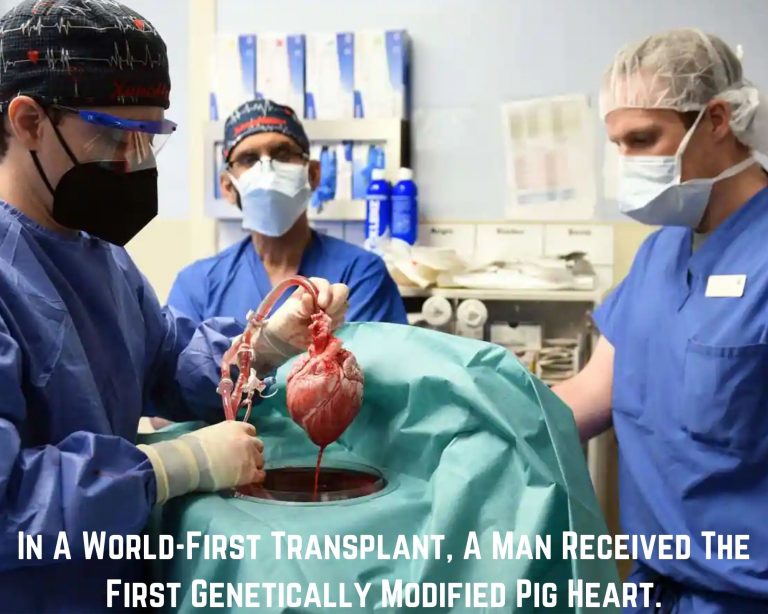
A genetically modified pig heart was implanted in a first-of-its-kind surgery on Monday in a patient with terminal heart disease, and three days later the patient appears to be doing well, according to his doctors.
Scientists are optimistic that pig organs, if proven effective, might be used to help reduce shortages of donor organs.
“This was a major surgery and it moves us one step closer to resolving the organ scarcity problem. There aren’t enough donor human hearts on hand to satisfy the long list of potential recipients, so this procedure is a breakthrough,” Dr. Bartley Griffith, who performed the operation on behalf of Transplantation Service Co., said in a news release.
Also Read:It’s Being Reported That Kanye West And Cardi B Shut Down A Balenciaga Store For A New Video
“We’re taking things slowly, but we’re also hopeful that this market-first surgery will provide a significant new option for patients in the future,” Griffith said.
For David Bennett of Maryland, the heart transplant was his last resort.
“It was either die or have this transplant. I want to live. It’s my last option, and it’s a long shot, but I’m going for it,” Bennett declared before his operation, according to the university.
The university rushed to apply for an emergency FDA approval on New Year’s Eve under its compassionate use program after getting permission from the U.S. Food and Drug Administration for the experimental surgery.
“End-stage heart disease patients who have no additional treatment alternatives might benefit from xenotransplantation,” said Dr. Muhammad Mohiuddin, the head of the University’s program on xenotransplantation – transplanting animal organs into humans. The FDA utilized our data and data from an experimental pig to greenlight the procedure.
Also Read: How To Stream Trail Blazers vs. Nets: NBA Live Stream Info, TV channel, Start Time
According to organdonor.gov, there are currently about 110,000 people on the national waiting list for an organ transplant, and more than 6,000 individuals die each year before receiving one.
The transplant team obtained Bennett’s genetically modified pig heart from Revivicor, a regenerative medicine firm based in Blacksburg, Virginia. The animal’s heart was removed and stored in a unique device before the operation to maintain its function.
Pigs have long been a tantalizing potential transplant source due to their organ resemblance to humans. The heart of a pig at slaughter is comparable in size to an adult human heart.
Kidneys, liver, and lungs are among the body parts being investigated for transplantation into people.
Previous attempts at pig-to-human transplants have failed due to genetic incompatibilities that created organ rejection or disease.
Genes that might be harmful have been deleted to solve the problem.
In Bennett’s heart, three genes linked with organ rejection were “deleted” from the donor pig and six human genes linked with immunological tolerance were inserted.
To prevent pig heart tissue from growing excessively, researchers deleted a pig gene.
The study was partly sponsored by a $15.7 million research grant to examine Revivicor’s genetically-altered pig hearts in baboon research.
Bennett also received an experimental anti-rejection therapy developed by Kiniksa Pharmaceuticals in Lexington, Massachusetts.
To get more related content related to Entertainment, Technology, Windows Fixes, Do-Follow Tremblzer. On Google News